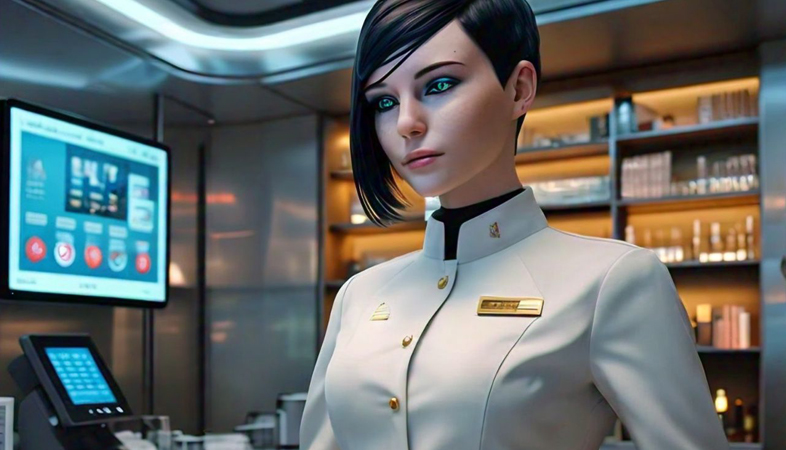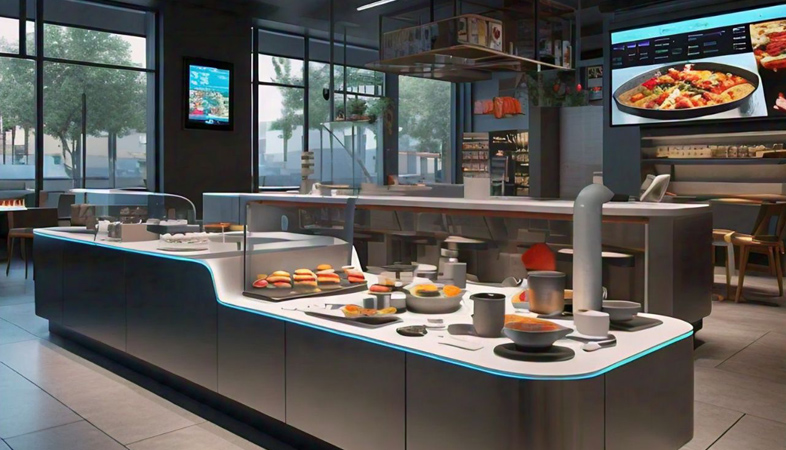The Hotel of Tomorrow: How AI is Redefining Guest Services
As technology continues to advance, the hotel of tomorrow will be defined by its ability to leverage AI to deliver exceptional service and unforgettable experiences.
The hotel industry is undergoing a remarkable transformation
driven by advancements in artificial intelligence (AI). As technology continues
to evolve, AI is redefining guest services and shaping the future of
hospitality. From enhancing personalized experiences to streamlining
operations, AI is becoming an integral part of the hotel experience, setting
new standards for guest satisfaction and operational efficiency.
One of the most significant ways AI is impacting the hospitality industry is through personalized guest experiences. AI-driven systems can analyze vast amounts of data to understand guest preferences and behaviors. This allows hotels to tailor services and offers to individual guests, creating a more personalized and memorable stay. For example, AI can predict the preferences of returning guests, such as room temperature, preferred amenities, or dining preferences, and make adjustments before the guest even arrives. This level of personalization not only enhances guest satisfaction but also fosters loyalty and repeat business.
AI-powered chatbots and virtual assistants are revolutionizing the way guests interact with hotels. These intelligent systems provide instant, 24/7 support, handling a range of requests from booking and room service orders to answering frequently asked questions. By offering immediate and accurate responses, AI chatbots improve the efficiency of guest interactions and free up human staff to focus on more complex tasks. This seamless integration of technology ensures that guests receive prompt assistance, enhancing their overall experience.
In addition to improving guest interactions, AI is optimizing hotel operations. AI-driven systems can analyze data to forecast demand, manage inventory, and optimize pricing strategies. For example, dynamic pricing algorithms use real-time data to adjust room rates based on factors such as occupancy, demand, and competitor pricing. This ensures that hotels maximize revenue while offering competitive rates. AI also aids in predictive maintenance by monitoring equipment and identifying potential issues before they become major problems, reducing downtime and maintenance costs.
AI is also transforming the check-in and check-out process. Automated check-in kiosks and mobile check-in apps powered by AI streamline the arrival process, allowing guests to bypass traditional front desk interactions. This not only reduces wait times but also enhances convenience for guests who prefer a contactless experience. Similarly, AI can facilitate efficient check-out processes, ensuring that billing is accurate and any additional charges are processed seamlessly.
The integration of AI in hotels extends to enhancing security and safety measures. AI-powered surveillance systems can analyze video feeds to detect unusual activities or potential security threats. This proactive approach to security helps ensure the safety of guests and staff. Additionally, AI can assist in managing access control systems, ensuring that only authorized individuals can enter secure areas of the hotel.
In-room technology is also benefiting from AI advancements. Smart room systems equipped with AI can control lighting, temperature, and entertainment options based on guest preferences. Voice-activated assistants, powered by AI, allow guests to interact with their room environment through natural language commands, making their stay more comfortable and convenient.
The future of hospitality is also being shaped by AI's role in sustainability efforts. AI can optimize energy usage by analyzing patterns in guest behavior and adjusting heating, cooling, and lighting accordingly. This not only reduces energy consumption but also supports the hotel's sustainability goals. AI can also aid in waste management by monitoring food and beverage inventory, minimizing waste, and improving overall efficiency.
AI is redefining guest services and shaping the future of the hotel industry. By enhancing personalization, streamlining operations, and improving guest interactions, AI is setting new standards for hospitality. The integration of AI in hotels promises to create more efficient, personalized, and sustainable experiences, transforming the way guests experience and interact with their accommodations. As technology continues to advance, the hotel of tomorrow will be defined by its ability to leverage AI to deliver exceptional service and unforgettable experiences.
.png)




























